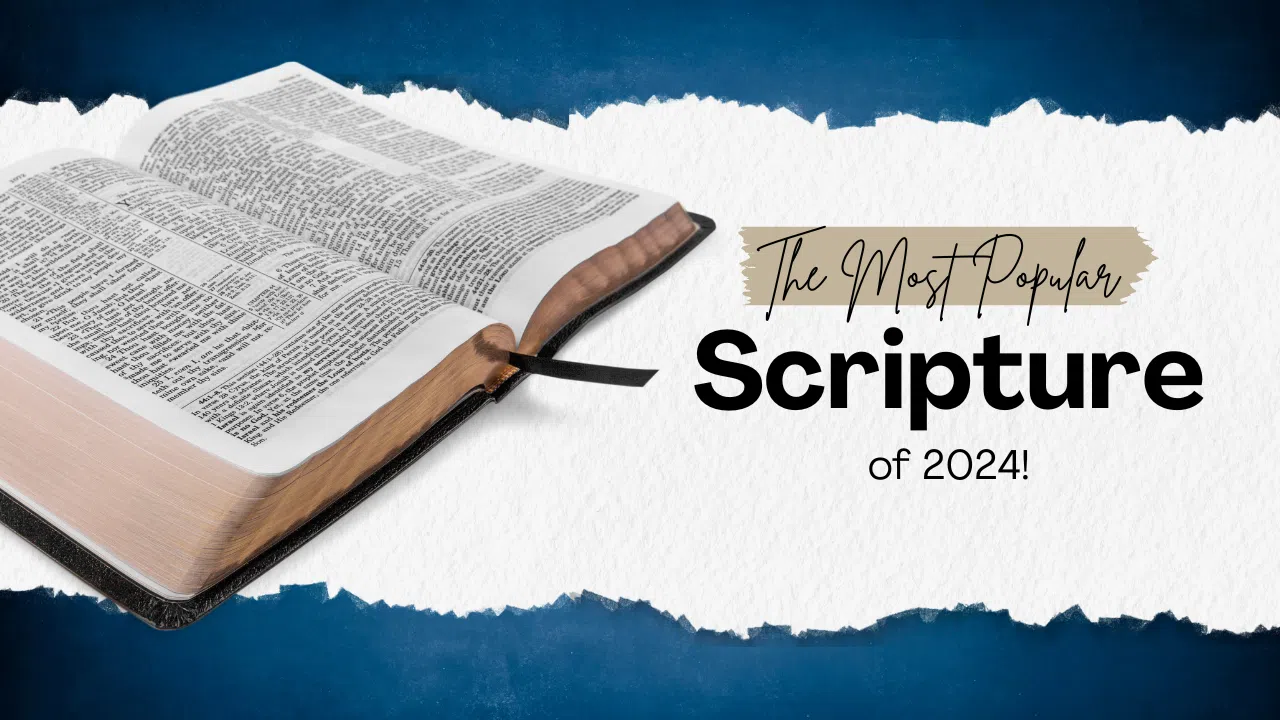YouVersion recently announced the most looked-up Bible verse of 2024 on their app, and I had to chuckle at it.
Do not be anxious about anything, but in every situation, by prayer and petition, with thanksgiving, present your requests to God. – Philippians 4:6
Of course it was.
Maybe this year wasn’t stressful for you like it has been for me. I sincerely hope not. But it’s likely that this verse was so sought out because many of us were looking for relief from an anxiety that seemed relentless this year. There’s some small comfort in knowing I wasn’t the only one.
I’ll be honest with you, though–this verse used to be a source of more anxiety for me, not less. I’d always read it as a command. As in, “stop being anxious. You have God. You can do better than that. Get it together.” (Thanks, Paul.)
So, every time I’ve felt anxious, I was in sin?
Every time social anxiety won out, and I left the party early because I couldn’t settle down and enjoy myself? Every time my heart would race about an overthought interaction with a friend or family member? Every time I had a panic attack? That seems like too much to ask, Lord.
Studying out anxiety brought some new awareness that changed this thinking for me. A New York Times article was particularly helpful in breaking down three things that seem similar but are actually distinctive: worry, stress, and anxiety.
Worry is mental, thinking ahead to possible outcomes, including the worst case scenarios, and trying to figure out how you would cope with them if they arose. Some worry is good and reasonable, and helps you solve problems in advance.
Stress is physical and psychological, a tension that accompanies real threats, which protects us in certain situations by kicking in our fight or flight, problem-solving response.
Anxiety is a reaction that happens when both mix together–when your worries trigger a physical response even if you aren’t being threatened at that very moment. It’s living in a state of self-protection, built up on worst case scenarios that haven’t happened yet and may not necessarily happen.
So while you can do things to manage your worry and stress and anxiety, saying that anxiety is sin is unfair and extreme. I don’t believe that our good and compassionate God condemns our impulses like that. He doesn’t tell us to shape up and get it together.
There are clues in the original language of the text, too.
My word nerd is showing here, but stay with me. Digging into the Greek meaning of the word “be anxious” is eye-opening. That Greek word is merimnaó, which breaks down into two words that mean “divided” and “mind”.
Merimnaó meant showing care or concern, and also being distracted by worry. It was an indication of a divided mind: one that tried to focus on God but was also tugged in a different direction to keep an eye out for worries too.
Where I used to see Philippians 4:6 as admonishment, I now see it as showing gentle compassion for the anxious person: a drawing back to putting our minds and hope fully on the God who loves us and cares for us and fights for our good.
Rather than, “you have to not be anxious,” it feels like it’s saying, “you don’t have to live anxiously”. It’s an invitation from God to set our anxiety aside.
What a different approach.
There are more Bible verses about anxiety or worry that invite us to set our minds fully on a God who cares deeply for us.
Philippians 4:6 might be the most popular verse of this year. But there are so many reasons in scripture we can bring our anxieties before God and trust him with the things that threaten to divide us from our relationship with him.
Here are more scriptures to combat anxiety, verses that will help you find rest and build confidence in God:
Psalm 34 – particularly verses 4-7:
I sought the Lord, and he answered me;
he delivered me from all my fears.
Those who look to him are radiant;
their faces are never covered with shame.
This poor man called, and the Lord heard him;
he saved him out of all his troubles.
The angel of the Lord encamps around those who fear him,
and he delivers them.
Psalm 16 – particularly verses 5-8:
Lord, you alone are my portion and my cup;
you make my lot secure.
The boundary lines have fallen for me in pleasant places;
surely I have a delightful inheritance.
I will praise the Lord, who counsels me;
even at night my heart instructs me.
I keep my eyes always on the Lord.
With him at my right hand, I will not be shaken.
Matthew 6:25-34
1 Peter 5:6-7
Isaiah 40:27-31
Jeremiah 17:5-8
Releasing anxiety is an ongoing practice, not a finish line you cross.
It takes creating boundaries that protect your heart and mind and body. For me, that includes avoiding caffeine, particularly coffee; sharing my struggles with people who understand; prayer and calm, still time with God; movement and exercise; and saying yes and no wisely. (Yes, I’m still learning this, and no, I don’t always set myself up well.)
While we can do things to manage our anxiety, chances are, we’ll face it again. It’s in those moments that we can be comforted by God’s invitation to bring our anxiety to him, to work it out and heal with him.
We don’t need to feel ashamed of our anxious thoughts, or avoid them as sinful behavior. You and I have a Heavenly Father who understands our struggles (Hebrews 4:15), and invites us into a relationship with him that gives our souls a chance to rest and recover from this exhausting world. I hope and pray that you and I can become familiar with an undivided mind that is fully dependent on the hope and confidence we have in our Creator.
PIN THIS!

 Read more of Jenn’s contributions to AllMomDoes here.
Read more of Jenn’s contributions to AllMomDoes here.

















